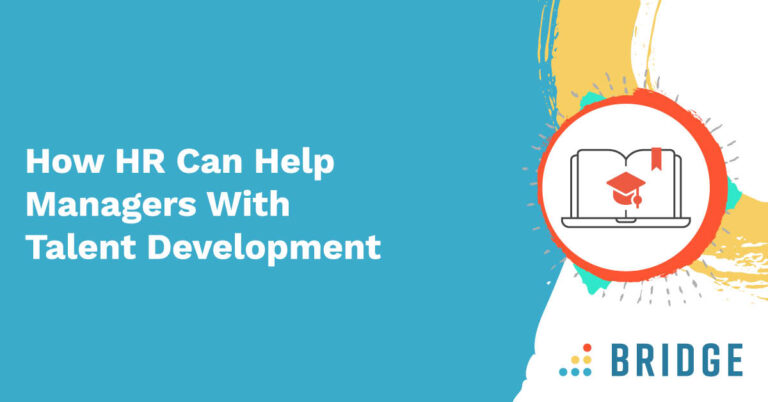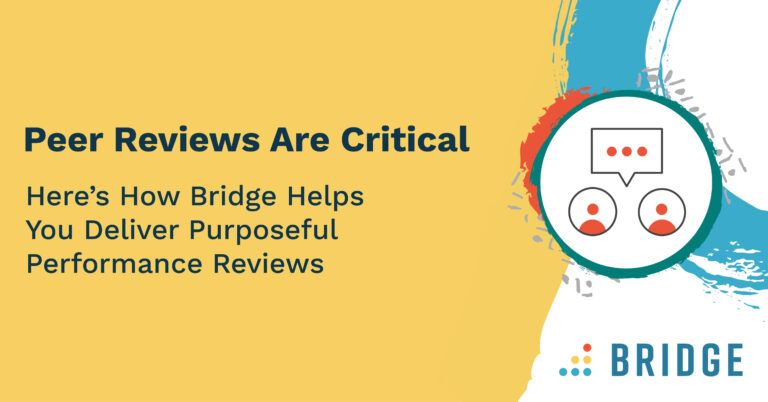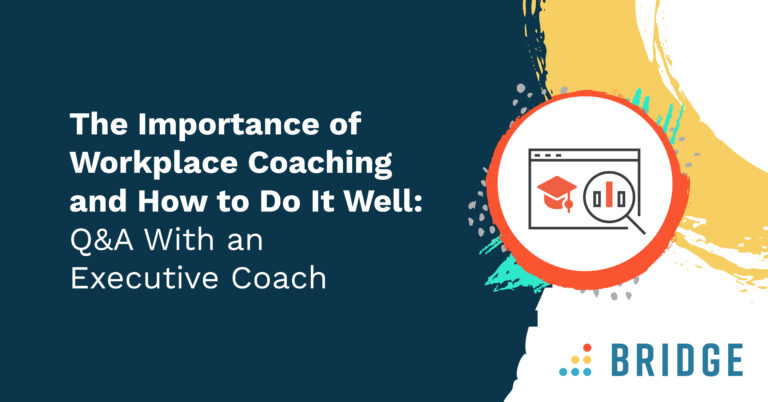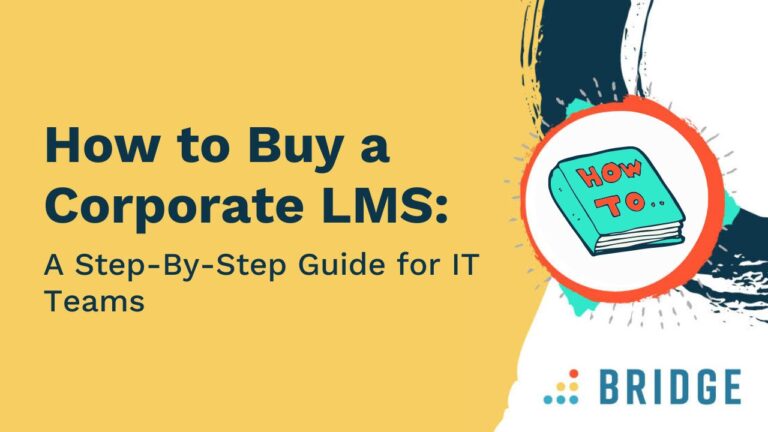HR teams may be the custodians of performance management and employee development, but that doesn’t mean they should work alone.
For one thing, HR teams are a busy bunch: 55% of HR leaders experienced increased requests in 2023, and 53% of L&D professionals over the same period had a similar story to tell. But more importantly, every organization comes fully equipped with the perfect partners for talent development: managers.
With strong insights into their reports’ goals, ambitions, and progress metrics, managers are often in a pristine position to facilitate—or even oversee—your talent development efforts. The only hiccup? They’re not always able to take full advantage of that position. Read on to discover:
- Why managers struggle to engage in talent development
- How HR teams can enable managers to develop their direct reports
- The importance of time, resources, and cultural change in the manager enablement process
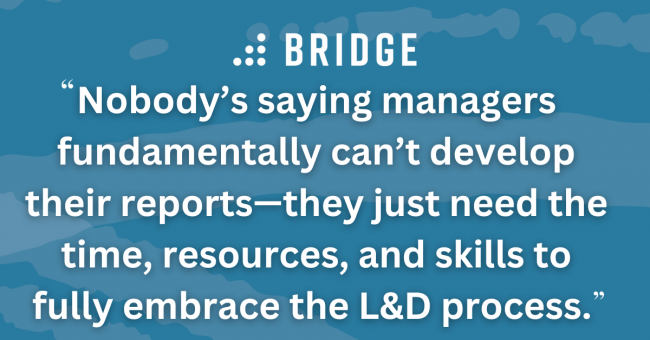
Why Aren’t Managers Engaging in Talent Development?
Recent research—including the results of some Bridge-sponsored analysis—has shed light on why managers need support and enablement from HR partners when it comes to employee development. If your managers aren’t able to effectively contribute toward employee upskilling, there’s likely a simple reason: it’s just a question of time and training.
According to one 2023 survey, managers spend around three-quarters of their time on tasks that take them away from talent management. And, among those respondents who spend less than a quarter of their time on talent management, their reasons are pretty clear: half lack the time, and 35% lack the resources.
But even when a manager does have the time to commit to talent development, that doesn’t mean they’re automatically qualified to do it well. This can be a particular problem among newer managers: 40% of employees describe work-related stress directly resulting from new managers lacking skills like conflict reduction, decision-making, and—crucially—providing quality feedback.
According to Bridge research, managerial skills gaps are more pronounced in the trained eyes of HR professionals. Only 23% of HR pros feel that their organizations’ managers are skilled at performance management—and it’s safe to assume that an inability to improve employee performance speaks to an inability to develop those employees.
All of these insights have one thing in common: they’re not describing innate deficiencies in managers or managerial roles. Nobody’s saying managers fundamentally can’t develop their reports—they just need the time, resources, and skills to fully embrace the L&D process. And that’s where HR comes into play.
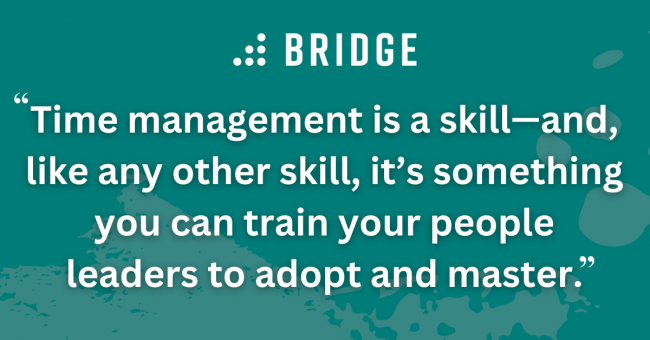
Enable Managers to Promote Employee Development in 3 Key Steps
So, how can HR and L&D teams enable managers to take a more proactive (and effective!) role in talent development? It’s just a question of addressing the practical barriers at play. Let’s take a look.
MORE FROM THE BLOG | ‘Are Perceptions of Performance Management Getting More Negative?’
1) Help Managers Make Time for Employee Development
As we’ve seen, plenty of managers lack the time they need to spend on talent development: they’re wrapped up in unrelated tasks. Think that’s a problem beyond the scope of HR? Think again!
As an HR professional, you’ll already have the tools you need to help managers regain some of the time they’re currently losing to unrelated work. Time management is a skill—and, like any other skill, it’s something you can train your people leaders to adopt and master.
Of course, you can’t assume your managers’ lack of development time is solely due to their time management skills—but that doesn’t mean you can’t help. By introducing the right HR and L&D tools to your leaders, you can quickly cut out the time-consuming elements of the talent development process.
The right upskilling platform, for example, will leverage AI and automation to automatically identify skills gaps and recommend learning to fill those gaps. A good performance platform will offer shared one-on-one meeting agendas to keep busy managers up to speed. In short: good HR tech offers a hands-off approach to the essentials, allowing your managers to devote their precious talent development time to the things that matter—like supporting reports as they grow.
2) Enable Managers With Employee Development Skills and Resources
Your managers might have all the time in the world to devote to employee development—but they’re still going to need the skills and resources to use that time effectively. Luckily, your HR department will be well-equipped to supply those skills.
After all, you’ll know better than anyone that talent development skills need to be taught. According to Bridge’s research, only 23% of our survey respondents believed that managers had received sufficient training in performance management—which means training is integral to resolving that problem.
In conjunction with upskilling your people leaders, you can also encourage managers to use intuitive HR tech. When your performance platform comes loaded with templates, prompts, and structures for effective performance conversations, alongside in-built goal alignment and performance review features, even your less experienced managers will be quickly transformed into skilled facilitators of talent development.
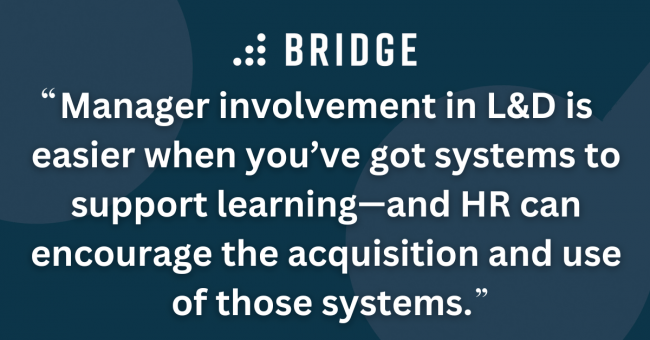
3) Build Talent Development Into Your Organizational Culture
Giving your people leaders the time and the skills for talent development is essential, but these forms of manager enablement are only effective when managers are willing to throw themselves into the development process. How do you inspire that level of willingness? Through a culture of learning that your HR colleagues are well equipped to cultivate.
Past research from the Chartered Institute of Personnel and Development found that when leaders value L&D, and when systems are in place to support employee and team learning, line managers are much more eager to play a part in talent development. In fact, they’re over twice as likely to get involved in assessing L&D impact and supporting their teams’ learning efforts. So, what can HR do to encourage that attitude?
For one thing, your HR department is in the perfect position to act as a champion for learning and development. By promoting your talent development needs to organizational leaders and securing C-suite buy-in, your managers—as the CIPD’s study suggests—will be more inclined to follow suit.
Cultural change can also take more practical forms, too. As the CIPD points out, manager involvement in L&D is made easier when you’ve got systems to support learning—and HR can encourage the acquisition and use of those systems. With a good mobile learning app, for example, you can encourage employees and managers to take advantage of push notifications and easy access to eLearning courses, allowing them to build those all-important L&D habits. And, with strong learning and performance analytics on your side, you’ll be able to monitor and encourage participation in learning activities, proactively accelerating toward a culture of learning before letting your managers take the wheel.
CREATE A CULTURE OF TALENT DEVELOPMENT | ‘Onboard, Develop, Advance: What Are the Major Elements of a Talent Journey?’
Put Your Managers at the Forefront of Talent Development With Bridge
Enable your managers to participate in talent development with Bridge. Our suite of learning, performance, and upskilling tools makes it easy for managers to get to grips with all things L&D—giving your HR team the confidence to leave talent development in their capable, Bridge-enhanced hands. Request a demo to see how Bridge can help you maximize your manager enablement.
